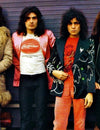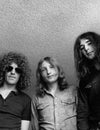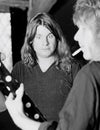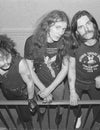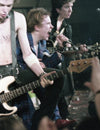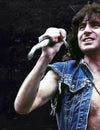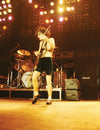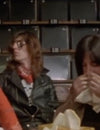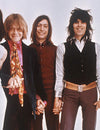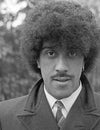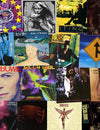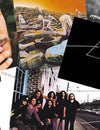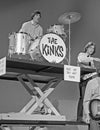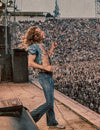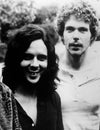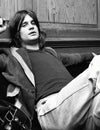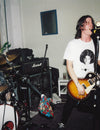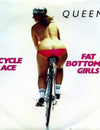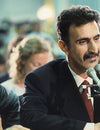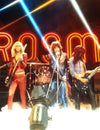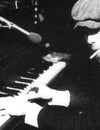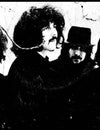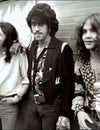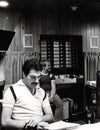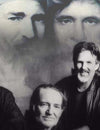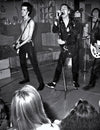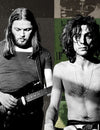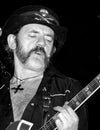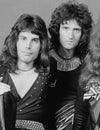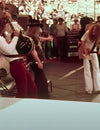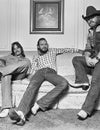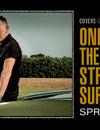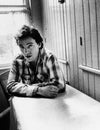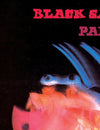
The Rolling Stones: Let It Bleed
In 1969, the musical landscape was changing. The Beatles performed live for the last time, and the world was gifted debut albums from Led Zeppelin, The Stooges, The MC5, The Allman Brothers, and a host of other now-iconic bands.
The Rolling Stones released their eighth British and tenth American studio album on November 28th, and for many fans and critics, it’s their best work. “Let It Bleed” climbed to number one on the UK charts, number three on the US Billboard Top LPs chart, and went double platinum. They went back to their blues-based rock roots, and the dark, sexualized lyrics presented a cohesive tracklist that vaulted them to the top of the rock and roll landscape.
Changes
Founder and guitarist, Brian Jones was on his way out of the band. His drug use was out of control, and he became more and more unreliable. The sound that he and fellow guitarist Keith Richards had built together - playing rhythm and lead parts together - was the calling card of the band, but change was needed. Jones had a history of fighting with the band’s manager, Andrew Oldham, as they had different ideas as to the musical direction the band should follow. In June 1969, Jones was kicked out of the band, and replaced by guitarist Mick Taylor. Tragically, Jones drowned in his swimming pool in East Sussex a month later. Jim Morrison honored him in a poem, and he was inducted into the Rock and Roll Hall of Fame in 1989. (You can read Morrison’s poem at the end of this article).
Gimme Shelter
Guitarist Keith Richards: “I had been sitting by the window of my friend Robert Fraser’s apartment on Mount Street in London with an acoustic guitar when suddenly the sky went completely black, and an incredible monsoon came down. It was just people running about looking for shelter; that was the germ of the idea...We went further into it until it became, you know, rape and murder are ‘just a shot away.’”
Vocalist Mick Jagger: “Well, it's a very rough, very violent era. The Vietnam War. Violence on the screens, pillage, and burning. And Vietnam was not war as we knew it in the conventional sense. The thing about Vietnam was that it wasn't like World War II, and it wasn't like Korea, and it wasn't like the Gulf War. It was a real nasty war, and people didn't like it. People objected, and people didn't want to fight it ... That's a kind of end-of-the-world song, really. It's apocalypse; the whole record's like that…It was a very moody piece about the world closing in on you a bit ... When it was recorded, early '69 or something, it was a time of war and tension, so that's reflected in this tune. It's still wheeled out when big storms happen, as they did the other week (Hurricane Sandy). It's been used a lot to evoke natural disaster.”
“Gimme Shelter” is on multiple all-time great lists: It’s number twelve on Pitchfork’s list of the two hundred greatest songs of the ‘60s. Ultimate Classic Rock ranks it as the Stones’ best song and number three on their best classic rock songs. It’s on Rolling Stone's five hundred greatest songs of all-time list, it’s number thirteen, and they also rank it as the band’s best song. According to Acclaimed Music, it’s the thirty-fourth most popular song in pop-music history.
You Can’t Always Get What You Want
The first song recorded for the album, and positioned as the last track, “You Can’t Always Get What You Want,” is the longest song of the nine, lasting seven minutes and thirty seconds. It’s one of their most popular recordings, appearing on eight different compilation albums. Written about love, politics, and drugs, it’s seen as the Stones’ answer to the Beatles’ “Hey Jude,” as Jagger loved it. On the making of the track, Jagger explained:
“You Can't Always Get What You Want" was something I just played on the acoustic guitar; one of those bedroom songs. It proved to be quite difficult to record because (drummer) Charlie (Watts) couldn't play the groove and so Jimmy Miller had to play the drums. I'd also had this idea of having a choir, probably a gospel choir, on the track, but there wasn't one around at that point. Jack Nitzsche, or somebody, said that we could get the London Bach Choir, and we said, ‘That will be a laugh.’”
In 2016, Donald Trump used the song at campaign appearances during the Republican primaries and the presidential election. Though he acquired a license to use it, the band requested that he stop using it, and made a public statement that they did not endorse him.
Country Honk
“Country Honk” is the third track on the album and is simply a country version of “Honkey Tonk Women.” It’s based on Hank Williams’ “Honky Tonk Blues,” and Keith Richards explained that it was the original concept for the song: “On Let It Bleed, we put that other version of 'Honky Tonk Women' on because that's how the song was originally written, as a real Hank Williams/Jimmie Rodgers, '30s country song. And it got turned around to this other song by Mick Taylor, who got into a completely different feel, throwing it off the wall completely.”
Taylor added: “My part on ‘Country Honk’ wasn't on a regular guitar; it was on one of those cheap little Selmer Hawaiian guitars, which I played on my lap in regular tuning.”
It reached number one on charts in the US, UK, New Zealand, Switzerland, Ireland, Denmark, and Australia, and made the top five in sixteen countries overall. A bootleg recording of the song exists that contains no fiddle or slide guitar.
Monkey Man
The album’s eighth track, “Monkey Man,” was written by Jagger and Richards as a tribute to pop artist Mario Shifano who the band met while on the set of his movie “Umano Non Umano! (Human, Not Human!). The intro has vibraphone, bass, guitar, and piano, making it very distinct. Keith Richards plays the main riff and slide guitar solo; Mick Jagger handles vocal duties, producer Jimmy Miller plays tambourine, Nicky Hopkins plays piano, Charlie Watts provides drums, and Bill Wyman plays vibraphone and bass.
It was featured in Martin Scorsese’s 1990 movie “Goodfellas” in a scene where the gangsters are trafficking cocaine and is seen by fans as one of their best and still underrated songs. There have claims that the song is racist, however the theme is pretty clear based on the opening lines: I'm a fleabit peanut monkey / And all my friends are junkies…. It’s no secret the band had issues with drugs, and this is a clear reference to their involvement with drug culture.
Midnight Rambler
The sixth track, “Midnight Rambler,” is a reference to Albert DeSalvo, who confessed to being the Boston Strangler. Keith Richards says the “‘blues opera’.. couldn’t have been written by anyone else.” Nice of him to be so modest. Written by Richards and Mick Jagger, Mick gave some insight into the creation of the song in a 1995 interview:
“That's a song Keith and I really wrote together. We were on a holiday in Italy. In this very beautiful hill town, Positano, for a few nights. Why we should write such a dark song in this beautiful, sunny place, I really don't know. We wrote everything there – the tempo changes, everything. And I'm playing the harmonica in these little cafes, and there's Keith with the guitar.”
Richards also talked about the track in a 1971 interview:
“Usually when you write, you just kick Mick off on something and let him fly on it, just let it roll out and listen to it and start to pick up on certain words that are coming through, and it's built up on that. A lot of people still complain they can't hear the voice properly. If the words come through, it's fine, if they don't, that's all right too, because, anyway, that can mean a thousand different things to anybody.”
They played it on stage for the first time on July 5th, 1969 and it was a staple of their live shows through 1976, with performances frequently including Jagger crawling around and lashing the stage with his belt, and runtimes that were as long as fifteen minutes.
Jim Morrison’s Poem
“Ode to LA while thinking of Brian Jones”
I’m a resident of a city
They’ve just picked me to play
the Prince of Denmark
Poor Ophelia
All those ghosts he never saw
Floating to doom
On an iron candle
Come back, brave warrior
Do the dive
On another channel
Hot buttered pool
Where’s Marrakesh
Under the falls
the wild storm
where savages fell out
in late afternoon
monsters of rhythm
You’ve left your
Nothing
to compete w/
Silence
I hope you went out
Smiling
Like a child
Into the cool remnant
of a dream
The angel man
w/ Serpents competing
for his palms
& fingers
Finally claimed
This benevolent
Soul
Ophelia
Leaves, sodden
in silk
Chlorine
dream
mad stifled
Witness
The diving board, the plunge
The pool
You were a fighter
a damask musky muse
You were the bleached
Sun
for TV afternoon
horned-toads
maverick of a yellow spot
Look now to where it’s got
You
in meat heaven
w/ the cannibals
& jews
The gardener
Found
The body, rampant, Floating
Lucky Stiff
What is this green pale stuff
You’re made of
Poke holes in the goddess
Skin
Will he Stink
Carried heavenward
Thru the halls
of music
No Chance.
Requiem for a heavy
That smile
That porky satyr’s
leer
has leaped upward
into the loam









